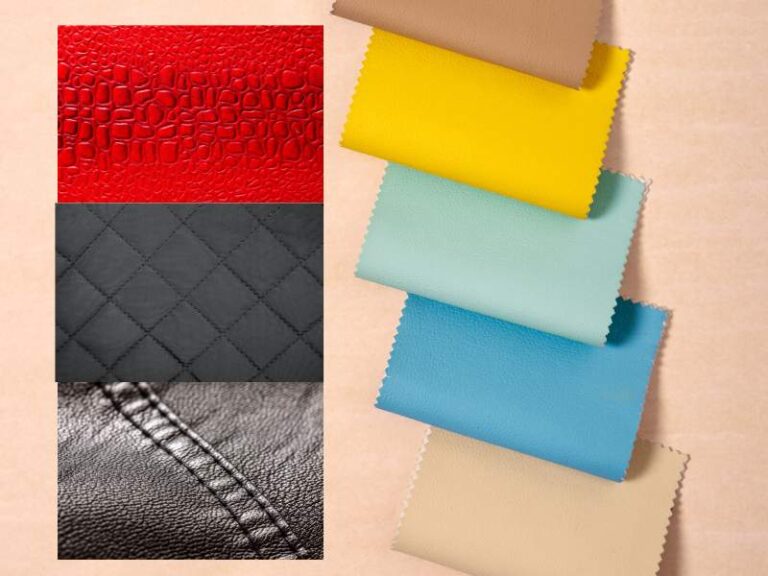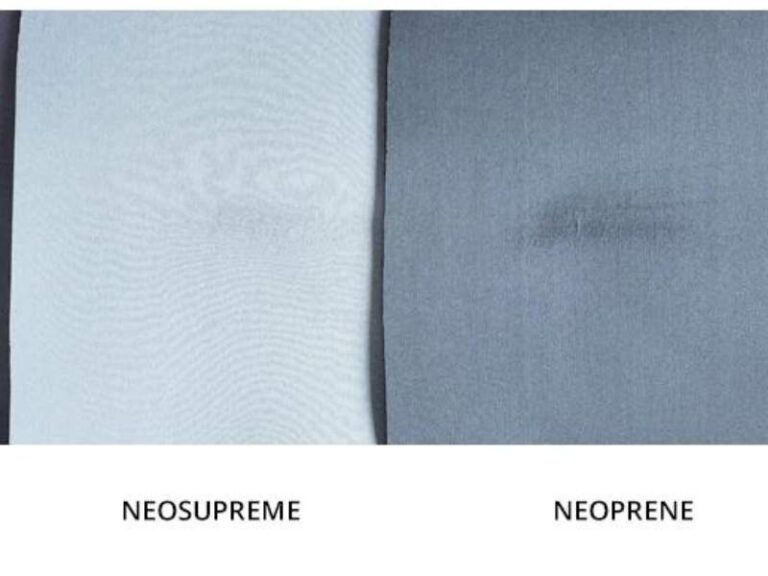What are the Hidden Drawbacks of 100% Polyester Fabric?
Cons of 100% Polyester Fabric include poor breathability, lack of durability, and potential for pilling and static cling. This synthetic fabric is known to trap heat and moisture, leading to discomfort and potential skin irritation.
Additionally, polyester is susceptible to wear and tear, making it less resistant to abrasion and prone to snagging and tearing. The fabric’s tendency to pill and attract static can cause garments to look worn and require frequent maintenance. Despite its affordability and easy care, the cons of 100% polyester fabric make it less desirable for those seeking comfort and longevity in their clothing choices.
Environmental Impact
Polyester fabric has several environmental cons. It is derived from non-renewable resources, energy intensive to produce, and releases harmful chemicals when made and during washing. Additionally, it is not biodegradable, contributing to landfill waste.
One of the major drawbacks of 100% polyester fabric is its non-biodegradable nature. Unlike natural fibers, such as cotton or wool, polyester is a synthetic material that does not break down easily in the environment. This means that once polyester fabric is discarded, it takes a significant amount of time to decompose, contributing to landfill waste.
Furthermore, the manufacturing process of polyester fabric can result in pollution. Polyester is derived from petroleum, a non-renewable resource, and the extraction and processing of petroleum can release harmful pollutants into the air and water.
Moreover, polyester fabrics have been found to shed microplastics during washing. These microplastics are tiny pieces of plastic that cannot be filtered out by wastewater treatment plants and often end up in rivers, oceans, and ultimately, the food chain.
| Cons of 100% Polyester Fabric: |
|---|
| Non-biodegradable nature |
| Pollution during manufacturing process |
| Microplastic shedding during washing |
Skin Sensitivity And Comfort
The cons of 100% polyester fabric are mainly related to skin sensitivity and comfort. Due to its synthetic nature, polyester fabric can potentially cause skin irritation, especially for individuals with sensitive skin. The fabric is known for its limited breathability, which can result in discomfort, especially in hot and humid weather conditions. Polyester also has poor moisture absorption capabilities, causing sweat to be trapped against the skin, leading to a sticky and uncomfortable feeling. Another issue with polyester is its tendency to generate static electricity, resulting in unpleasant shocks and discomfort. Overall, while polyester fabrics offer durability and affordability, they may not be the best choice for individuals seeking optimal skin comfort and breathability.
Durability Challenges
100% polyester fabric is susceptible to heat damage and melting, which can be a significant downside. Exposing polyester to high temperatures, such as during ironing or in contact with hot objects, can cause the fabric to melt or shrink. This can lead to irreversible damage and compromise the overall durability of the garment or textile.
Furthermore, polyester fabric can be difficult to clean when it comes to oil-based stains. These stains tend to adhere to the fabric, making them stubborn to remove. The use of strong solvents or detergents may be necessary, which can further weaken the fabric and contribute to its deterioration over time.
Another issue commonly associated with 100% polyester fabric is the occurrence of pilling. Pilling refers to the formation of small, unsightly balls of fibers on the surface of the fabric. This phenomenon often happens due to friction or rubbing, especially in areas of frequent use. Over time, the pilling can make the fabric look worn out and negatively impact its aesthetic appeal.
Economic And Ethical Concerns
When considering the cons of 100% Polyester fabric, it is important to address the economic and ethical concerns associated with this synthetic material.
Firstly, one aspect to consider is the lower resale value compared to natural fibers. Polyester garments generally depreciate faster, resulting in a reduced market value over time.
Ethical implications also arise from the cheap production of polyester fabric. Due to its low cost and easy manufacturing process, large amounts are produced, often in countries with lower labor standards. This can lead to exploitative and unfair working conditions for workers in the textile industry.
Furthermore, the production of polyester fabrics can have a negative impact on local textile industries. With the proliferation of inexpensive polyester garments, the demand for locally produced natural fibers decreases, resulting in potential job losses and a decline in traditional textile crafts.
Maintenance And Care Limitations
100% polyester fabric has several cons when it comes to maintenance and care. Special laundering requirements are one limitation of this fabric. Unlike other types of fabrics, polyester may need to be washed separately or with similar materials to prevent damage or color bleeding. Additionally, ironing polyester can be challenging due to its heat sensitivity, as high temperatures may cause the fabric to melt or burn.
Dry-cleaning is also not suitable for polyester fabric as the chemicals used in the process can weaken its fibers and lead to fabric degradation over time. Moreover, polyester is prone to color fading, especially when exposed to direct sunlight or harsh chemicals found in some laundry detergents or cleaning products.
Performance Under Extremes
100% polyester fabric has certain cons that are especially evident under extreme conditions. One of the drawbacks is its inadequate UV protection. Polyester fabric does not provide sufficient shielding against the harmful rays of the sun, leaving the wearer vulnerable to sunburn and skin damage.
In addition, polyester fabric exhibits poor insulating properties in cold conditions. It does not provide much warmth and can make the wearer feel cold and uncomfortable.
Moreover, polyester fabric is prone to quick deterioration in extreme environmental conditions. Excessive exposure to heat, humidity, and sweat can lead to the fabric losing its color, shape, and overall quality.
Long-term Quality And Aesthetics
One of the key drawbacks of 100% polyester fabric is its compromised longevity. Over time, the fabric tends to lose its quality, affecting its overall aesthetics. Continuous use and exposure to various elements can result in fading, pilling, and a worn-out appearance. These issues can make the fabric look less appealing and visually unattractive.
Moreover, altering and repairing polyester fabric can present challenges. The material is inherently difficult to alter or modify due to its synthetic composition and ready availability in pre-made forms. Any attempts to mend or transform the fabric may result in a compromised finish or structural integrity.
Therefore, while polyester fabric offers several benefits such as durability and affordability, it is crucial to consider these cons, especially if you prioritize long-term fabric quality and aesthetics.
Frequently Asked Questions For What Are The Cons Of 100% Polyester Fabric?
Does 100% Polyester Fabric Shrink?
Yes, 100% polyester fabric is known for its excellent resistance to shrinking. Unlike natural fibers, polyester does not shrink when exposed to heat or moisture, allowing garments and textile products to maintain their original size and shape over time.
Is 100% Polyester Fabric Breathable?
No, 100% polyester fabric is not very breathable. Polyester fibers are synthetic and do not have the same breathability as natural fibers like cotton or linen. This can make wearing polyester garments in hot and humid weather uncomfortable, as they tend to trap heat and moisture against the skin.
Does 100% Polyester Fabric Wrinkle Easily?
No, 100% polyester fabric is generally wrinkle-resistant. Polyester fibers have good elasticity and resilience, allowing them to bounce back to their original shape after being stretched or compressed. This makes polyester garments and textiles less prone to wrinkles, making them a popular choice for travel or low-maintenance clothing.
Conclusion
To sum up, while 100% polyester fabric offers several advantages, such as durability and affordability, it also has some significant drawbacks. Its lack of breathability can lead to discomfort and overheating, especially in hot climates. Additionally, its propensity to pill and retain odors may detract from its overall appeal.
Before making a purchase decision, it’s essential to weigh these cons against the fabric’s positive attributes.
- Can I Get in a Taxi Without a Car Seat? - January 26, 2025
- Can I Get Chlamydia From a Toilet Seat? - January 26, 2025
- Can I Get an Uber With a Car Seat? - January 26, 2025






